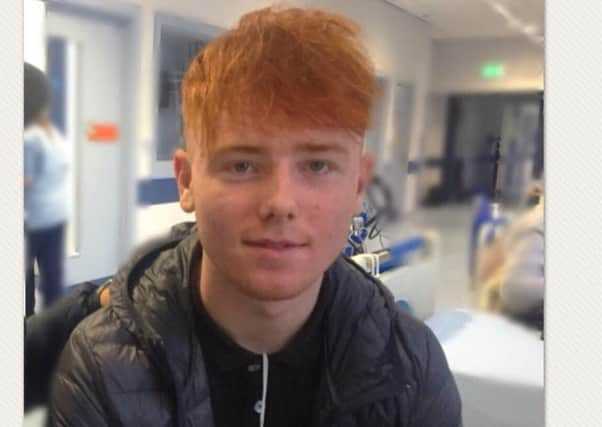Parents of young woman who died in custody meet justice secretary


Their demand comes after it emerged at least four young people, including Miss Allan, have taken their own lives in Polmont since January 2017. In the latest tragedy early last month, William Lindsay, a vulnerable 16-year-old, killed himself within 48 hours of being remanded there despite being flagged up as a suicide risk.
Social workers and the Scottish Children’s Reporter Administration had wanted William to be placed in a secure unit rather than in jail after he was arrested and charged with possessing a knife, but there were none available.
Advertisement
Hide AdAdvertisement
Hide AdThe spate of suicides – highlighted by The Scotsman – has prompted urgent questions in Holyrood. Angus MacDonald, MSP for Falkirk East, the constituency in which Polmont lies, is to raise the matter at Holyrood. He will ask the Scottish Government what protections have been put in place for young offenders in custody.
At the meeting with Mr Yousaf, Linda and Stuart Allan will also call for an overhaul of the prisons inspection regime. “We believe inspections are currently are far too piecemeal,” their solicitor Aamer Anwar said yesterday. “They are not being carried out frequently enough and there should be more unannounced inspections.”
Miss Allan was jailed for 16 months for causing serious injury by dangerous driving while over the drink-drive limit, despite a social services report recommending community service. Mr and Mrs Allan have drawn up a list of problem areas they want to see addressed.
One is the provision of mental health services in Scottish jails. They claim that despite several pioneering reports and the Scottish Prison Service’s (SPS) most recent anti-suicide strategy, Talk To Me, mental health is not being prioritised. In 2011, the responsibility for the provision of health care in jails transferred from the SPS to the NHS.
Last year, the Royal College of Nursing published a review of the service which revealed the transfer had not improved outcomes and suggested there were still “significant concerns” over the management of prisoners.
A further area of concern is the length of time it takes for an Fatal Accident Inquiry to be held – sometimes up to four years. “In a situation where somebody is in a cell and they have taken their own life and it is obvious to everybody around them that they have hanged themselves then it oughtn’t to take very long to get an FAI set up,” Mr Anwar said. “This is important so that no cover-ups take place, so the anger doesn’t dissipate, so the authorities are able to learn lessons quickly.
“It makes no sense to have these delays and the Lord Advocate ought to have the courage to stand up and say the FAI system is failing this country. If it’s a question of resources then the Crown should say that.”
Mr Anwar also represents William’s mother Christine. He intends to ask Mr Yousaf why there was no place in a secure children’s unit available for William and how often young people are being sent to prison in similar circumstances. Finally, he wants to know what checks were carried out on William in the 48 hours he spent at Polmont.
Advertisement
Hide AdAdvertisement
Hide AdThe teenager is understood to have arrived there on the Thursday night and to have been found dead on Sunday morning. This raises the question of whether anyone checked on him on Saturday night.
Mr Anwar added: “The question also arises: ‘What has Polmont been doing since Katie and William’s deaths?’
“Are they still resting on that mantra: ‘We will await the outcome of the FAI’? Because William’s family will not accept that; Katie’s family will not accept that.”
“The Crown Office and Procurator Fiscal Service is increasing the resource available to the Scottish Fatalities Investigation Unit, with a view to reducing the duration of death investigations.
“Earlier completion of complex death investigations and the provision of information in terms of the COPFS Family Liaison Charter will reduce the uncertainty for nearest relatives when someone dies unexpectedly and maximise the impact of steps taken to learn from the death.”